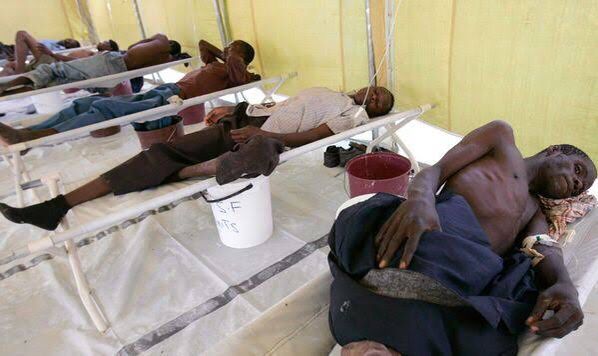Medical practitioners have identified legislation on homelessness and open defecation, adequate hygiene, enlightenment campaigns, and job creation as major approaches to curb the spread of cholera and prevent future outbreaks in Nigeria.
The experts shared their insights with the News Agency of Nigeria (NAN) in Lagos, following the recent cholera outbreak in Lagos State and other parts of the country.
According to reports on June 9, 2024, the Lagos State Government declared a cholera outbreak, confirmed by the Emergency Operation Centre (EOC) on June 12.
Dr. Livinus Abonyi, a Medical Imaging Scientist, emphasized the need for legislation on homelessness and open defecation to reduce street idleness and its environmental impacts. Abonyi, Head of the Department of Medical Radiography at the University of Lagos College of Medicine, stressed the importance of sustained campaigns against open defecation, highlighting its societal implications.
He attributed the high incidence of cholera in Lagos to the homeless population living under bridges, in uncompleted buildings, garages, parked vehicles, and roadside markets. “These individuals are involved in massive open defecation, which the rain washes into domestic water sources,” Abonyi explained.
To prevent future outbreaks, Abonyi called for strategic policy formulation and implementation, including strengthening existing health facilities with more manpower and bed spaces. He also urged the government to recruit volunteers to meet the high demand for healthcare.
Dr. Moyosore Makinde, a Consultant Family & Lifestyle Medicine Physician, cautioned against consuming contaminated food and water to avoid cholera. Makinde, President of the Society of Lifestyle Medicine of Nigeria (SOLONg), emphasized personal hygiene, safe drinking water, and proper food preparation as crucial preventive measures.
“Cholera is transmitted through food and water contaminated with Vibrio cholerae. Prevention includes hand hygiene, boiling drinking water, and using treated water for cooking. Avoid eating raw or undercooked foods, and ensure thorough washing of fruits,” Makinde advised. She also highlighted the importance of environmental sanitation and the cholera vaccine.
Dr. Gerald Chinasa, a General Physician Consultant, urged Nigerians to maintain good personal hygiene and proper waste disposal. He noted that cholera, a food and water-borne disease caused by ingesting Vibrio cholerae bacteria, can be fatal if not promptly treated.
“Foodstuffs from markets should be washed with salt before consumption. Toilets should be cleaned with alcohol-based detergents at least three times a week. Children should be taught proper hand washing after contact with public places,” Chinasa said.
These experts’ recommendations aim to enhance public health measures and prevent future cholera outbreaks in Nigeria.



